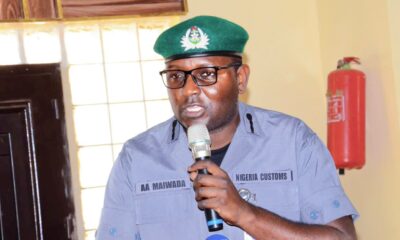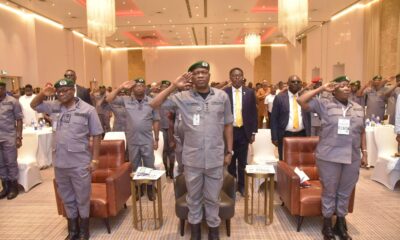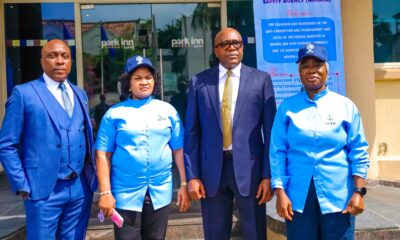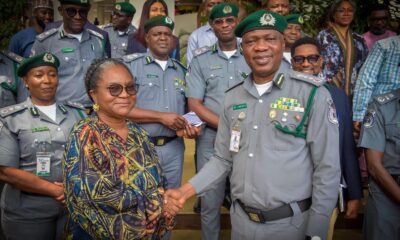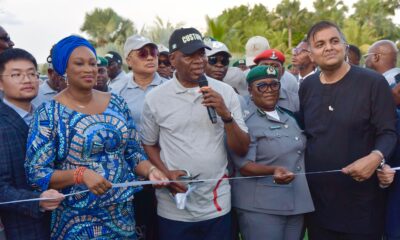Maritime
‘Missing Political Will, Culture, Infrastructural Gaps, Inhibiting 24-Hour Ports Operations’ – Stakeholders
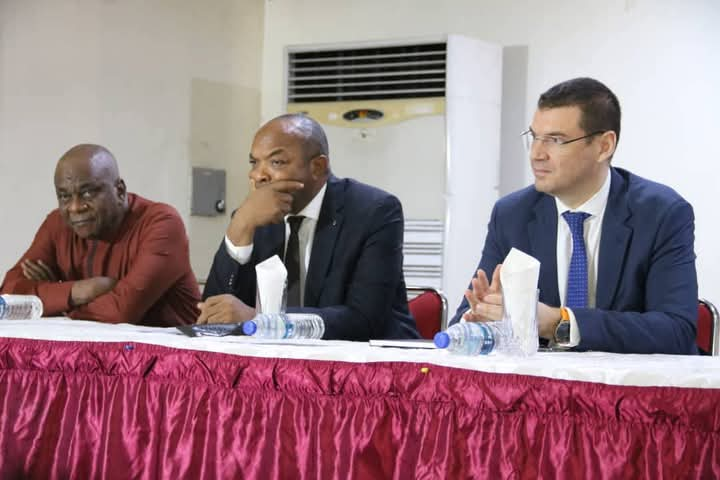
FUNMI ALUKO
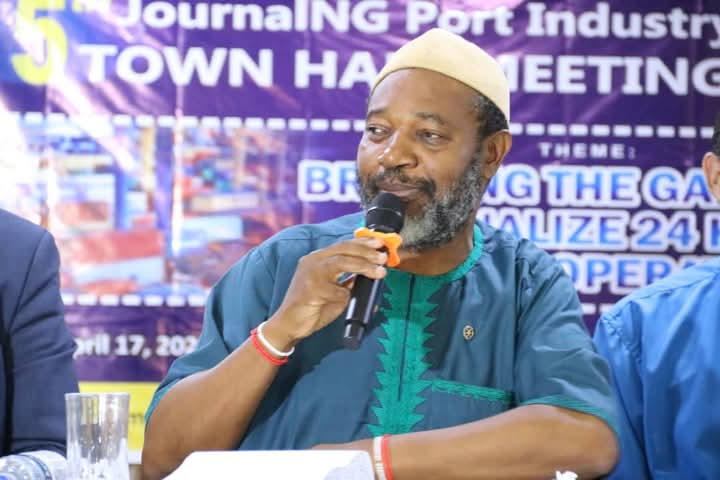
Dr. Nweke
Stakeholders in the Nigerian port system have listed a number of impediments hindering the success of 24-hour ports operations, top of which is perceived lack of political will on the part of the nation’s political leadership to develop a pragmatic, do-able and functional policy framework.
They also identified lacks in some areas of critical infrastructure, unproductive cultural orientation, absence of a properly structured port system that supports a round-the-clock operation amongst others as current drawback militating against 24-hours ports operation.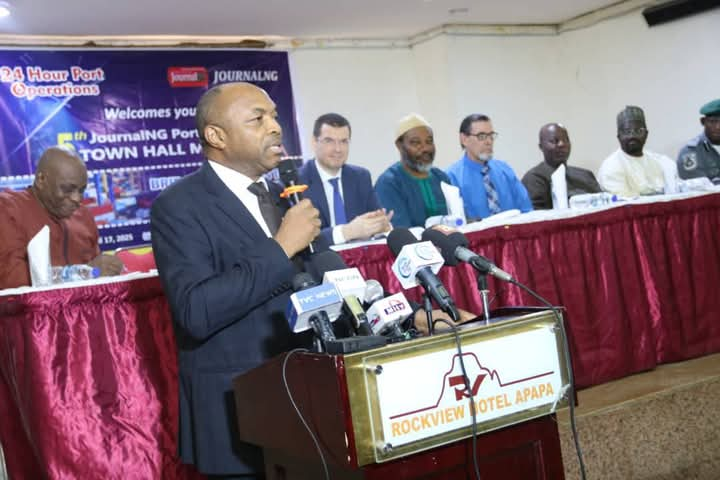
The stakeholders who were speaking at the 5th JournalNG Port Industry Town Hall Meeting which held at the Rockview Hotel, GRA Apapa Lagos with the theme: Bridging the Gaps to Actualize 24 hours Port Operations noted that the identified challenges are surmountable through innovations and renewed commitment by all concerned stakeholders; including the federal government and its agencies.
Flagging off the two hall meeting, the Chairman of the occasion, Dr. Eugene Nweke who is the Head of Research at Sea Empowerment Research Centre (SEREC), expressed concern about what he described as fragmented attempts over the past one decade to have port operation processes digitalized.
Nweke argued that whereas there is urgent need to harmonize the various digital platforms by different port service providers and regulatory agencies in a single windows; lamented that there appear to be some sort of rivalry amongst the key agencies of government to have a single system that promotes ease of doing business and port trade cost efficiency.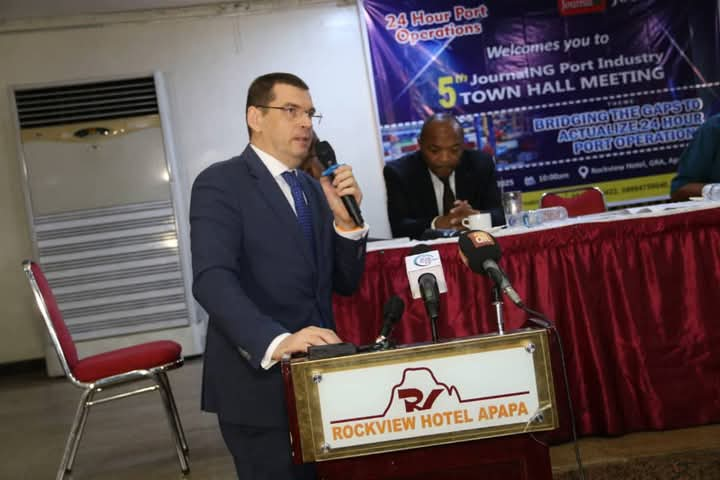
This is seven as he accused the federal government of lacking the political will to carry out the required innovations through cutting edge technology, noting that these innovations are not only achievable but remains the only way that must be taken to guarantees regional and international competitiveness.
“A 24 hour port operation is achievable if government would give a clear order to this effect. Government should get a regulatory agency to supervise port operations accurately for monitoring and evaluation.
“Once everyone knows what to do, operators will be guided. It will not be a situation where government issues port orders without monitoring and without enforcement.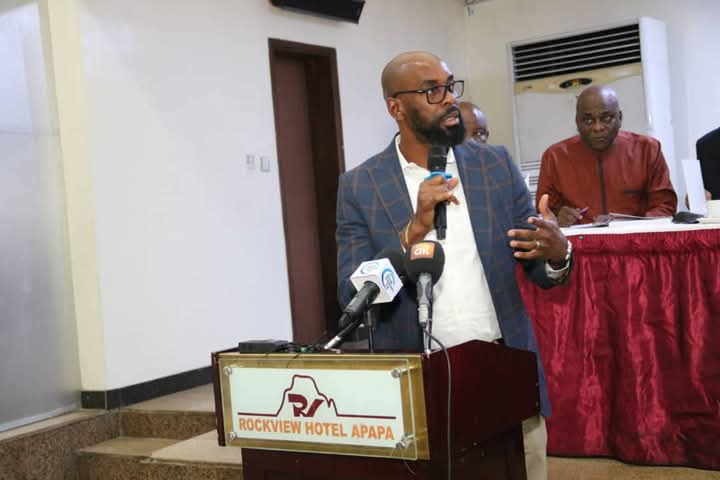
“So we need a political will to drive our ports for 24-hour port operations in Nigeria. There must be the right policy framework that allows 24-hour operations of ports, especially for service providers whose activities are essential in the logistics value-chain”, he said.
The former President of the National Association of Government Approved Freight Forwarders (NAGAFF) said that while collaboration and partnership between stakeholders is paramount, identifying unwarranted bottlenecks delaying the achievement of 24 hours ports operations should attract necessary actions, including sanctions.
On his part, Chairman of the Nigeria Ports Consultative Council (NPCC), Mr Bolaji Sunmola waxed philosophical as he said the quest to actualize 24hour port operations in Nigerian seaports was no longer aspirational but necessary.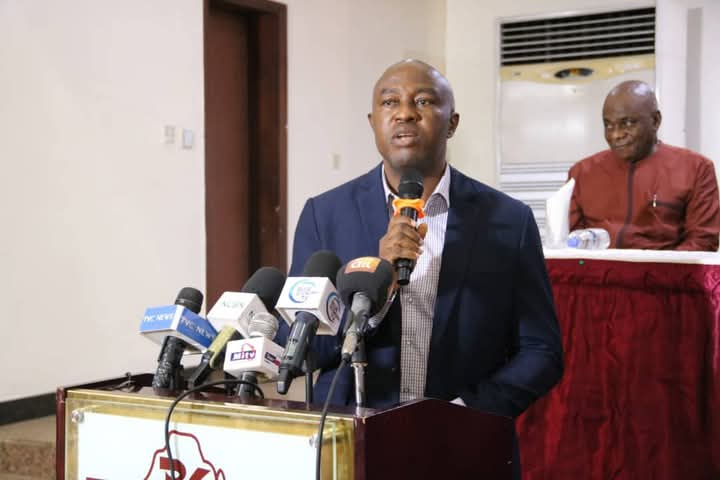
Sunmola said with a carefully structured roadmap and strategy anchored on technology, sustainability, and stakeholder alignment, there is no reason the Nigerian port system cannot be positioned as a leading, secured, cost efficient and competitive port in the sub region and beyond.
“With a carefully sequenced strategy anchored on technology, sustainability, and stakeholder alignment, we can reposition our ports as efficient, secure, and economically transformative assets.

“As Chairman of NPCC, I reaffirm our commitment to this vision. We invite all stakeholders—MDAs, port terminal operators, energy providers, transport unions, and investors—to join us in executing this transformation,” Sunmola said.
The Port Manager of Apapa Port, Mr. Adebowale Lawal in his presentation identified aspect of our culture orientation as defeatist orientation to productivity, noting that during public holidays and festive seasons, Nigerian seaports are characterised by a lull in activities as stakeholders stay away from doing businesses at the ports; and hence constitute a major drag to 24hour port operations.
He also lamented port users’ inability to carry out some bank transactions and payments outside the banking hours.
In his own presentation, the General Manager of Trade Modernisation Project (TMP), Mr Ahmed Ogunsola said it has continued to raise the bar in its role in port operations which is partnership and collaboration.
While urging other stakeholders to collaborate and point out challenges hindering 24 port operations to provide solutions, Ogunsola said that TMP worked with the NCS to enhance cargo clearance by providing technology backbone, and building capacity and to enhance sustainability; and noted that 24 hour port operations is achievable through robust collaboration.
He said, “The TMP had agreement with the Federal Government to provide 67 scanners and presently we have successfully brought five scanners into the country to modernize Nigeria Customs Service and facilitate trade.”
Speaking further, Ogunsola stressed the need for an independent regulator to check the performances of various partners in the agreement, noting that a Public Private Partnerships (PPPs) under the state port system should not be allowed to run without KPI or to operate in silo.
Contributing and collaborating TMP concern, the Managing Director, ENL Consortium, Mr Mark Walsh, urged Nigeria banks attached to ports cargo clearance operations to improve their operation to avoid delays in payments.
Walsh lamented that one major hurdle in port operations is energy costs, which he said requires urgent solution, noting that port operations needs efficient lighting especially in the area of security during the night.
This is even as he commended the Federal Government and the Nigerian Ports Authority for modernizing the ports, adding that there was need for 24hour lighting at the ports, to stop them from running generators 24/7.
In his own intervention, the President of National Council of Managing Directors of Licensed Customs Agents (NCMDLCA) Mr. Lucky Amiwero said some of the state structures supporting port operations are more of hindrances than supporting port trade.
He therefore called for more training for freight forwarders, Nigerian Customs Service (NCS) and terminal operators.
Amiwero also warned the federal government utilising the National Single Window mainly for purposes of revenue generation, instead of serving as a tool for trade facilitation and 24hour port operations.
The Publisher of JournalNG Magazine, Mr Ismail Aniemu in his welcome address while thanking participants and discussants at the occasion, said a 24 hour port operations is one that requires savvy and smart outlook adding that Nigeria had competent expert that would assist government to actualize the dream of a 24 hour port operation.
The town hall meeting attracted critical stakeholders in the industry including the Nigeria Customs Service (NCS), Nigerian Maritime Administration and Safety Agency (NIMASA), private Port Operators under the Seaport Terminal Operators Association of Nigeria (STOAN), freight forwarders, Regulation of Freight Forwarding in Nigeria (CRFFN), Maritime Workers’ Union of Nigeria (MWUN), Webb Fontaine, Lekki Port; academicians, maritime press, among others.

